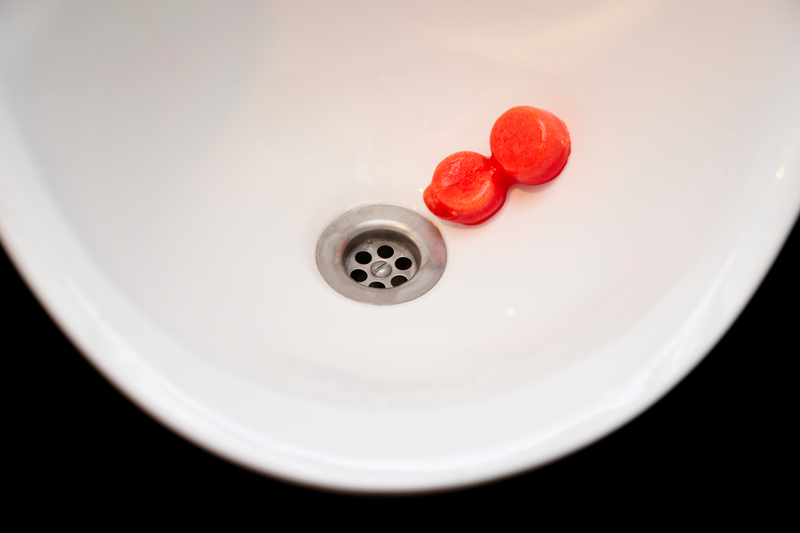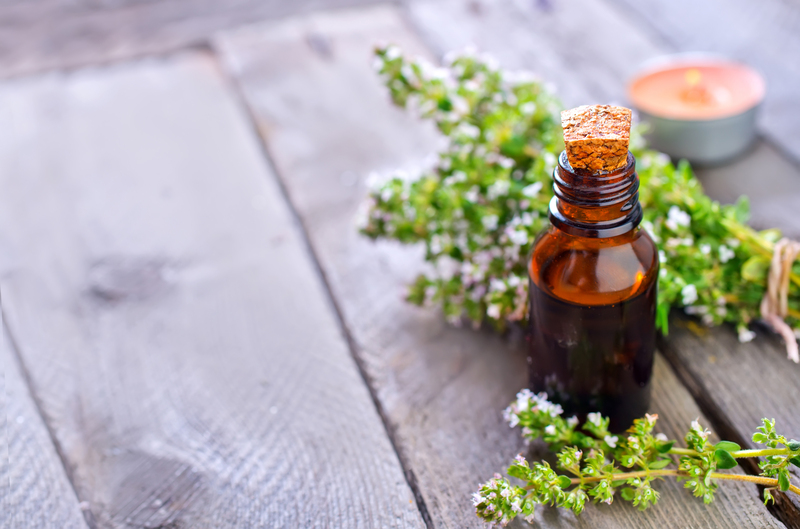Discover Expert Jewellery Cleaning Methods
Posted on 28/09/2025
Discover Expert Jewellery Cleaning Methods
Jewellery is more than just an accessory; it carries sentiment, tradition, and value. But as time passes, these pieces can lose their original luster due to exposure to dust, oils, and chemicals. If you cherish your jewellery, learning professional jewellery cleaning methods is crucial. In this comprehensive guide, we will uncover various expert jewellery cleaning techniques, address frequently asked questions, and provide practical tips to keep your valuable pieces looking as stunning as the day you bought them.
Why Expert Jewellery Cleaning Methods Matter
Regular cleaning not only maintains your jewellery's sparkle but also enhances its longevity and value. Neglected items can harbor dirt in crevices, leading to damage or even stone loss. By understanding and applying the best jewellery cleaning practices, you will:
- Preserve shine and brilliance
- Prevent tarnish and corrosion
- Avoid build-up of harmful substances
- Protect delicate settings and gems
- Maintain sentimental value for generations

Top Expert Jewellery Cleaning Techniques
Let's explore the most reliable expert jewellery cleaning methods that can be performed at home or require professional attention, designed to suit a variety of metal types and gemstones.
1. Cleaning Silver Jewellery
Silver is prone to tarnish but can be restored with a touch of expertise. Here's how to clean silver jewellery professionally:
- Soap and Water: Mix a few drops of mild dish soap in warm water. Soak the silver for a few minutes, gently scrub with a soft-bristled brush, rinse thoroughly, and pat dry.
-
Baking Soda Paste: Create a paste of three parts baking soda to one part water. Rub gently with a cloth, then rinse and buff dry.
Note: Avoid harsh scrubbing on embossed or antique pieces. - Aluminium Foil Method: Line a bowl with foil, add hot water, a tablespoon of baking soda, and some salt. Place the silver to initiate a chemical reaction that removes tarnish, then rinse and dry.
- Commercial Silver Cleaners: Use these sparingly for stubborn tarnish and always follow package instructions.
2. Cleaning Gold Jewellery
Gold is less prone to tarnishing but can dull from oils and residues. Here's how to clean gold like an expert:
- Warm Soapy Bath: Mix a few drops of mild liquid soap in lukewarm water. Soak your gold jewellery for 15-20 minutes, gently brush, rinse, and dry with a soft cloth.
-
Ammonia Solution: For deeper cleaning (not for frequent use), mix one part ammonia with six parts water, soak briefly, rinse, and dry.
Warning: Ammonia can damage delicate gemstones and should be used with caution. - Polishing Cloth: Regularly buff gold jewellery with a specially designed jeweller's cloth to maintain its brilliance.
3. Cleaning Gemstone Jewellery
Precious and semi-precious gemstones require gentle care. The cleaning process varies by stone type, so always check if your gem has any special needs. Here are expert tips:
- General Safe Cleaning: Use lukewarm water, a few drops of mild soap, and a soft brush. Avoid soaking porous stones like opals or pearls.
- Ultrasonic Cleaners: These devices can clean deeply but should not be used for soft, treated, or fractured gemstones like turquoise, opal, emerald, or tanzanite.
- Professional Cleaning: For intricate or high-value pieces, periodic professional attention ensures stones remain secure and vibrant.
4. Cleaning Pearl Jewellery
Pearls are extremely delicate, absorbing oils and liquids, which can dull their sheen. Always use the utmost care:
- No Soaking: Never soak pearls. This can weaken the silk thread and damage the nacre (surface).
- Damp Cloth: Wipe with a clean, slightly damp cloth after each wear to remove body oils and residue.
- Specialized Pearl Cleaners: Use only cleaners marked as safe for pearls, following all instructions carefully.
- Professional Restringing: Restring pearls every few years to keep them secure and beautiful.
5. Cleaning Costume Jewellery
Costume or fashion jewellery is often made from non-precious metals and may be glued rather than set. Many traditional jewellery cleaning techniques can damage these items, so take special care:
- Spot Clean Only: Dip a soft cloth in soapy water, clean gently, and avoid getting settings or glue wet.
- Buffing: Use a dry microfiber cloth to return shine after cleaning.
- Avoid Chemical Cleaners: These can strip off finishes and damage rhinestones or plastics.
DIY Jewellery Cleaning Remedies
Looking for safe, at-home solutions? These methods harness household ingredients for effective results:
- Baking Soda and Vinegar: Combine for a gentle foaming cleaner perfect for gold and silver. Avoid using on pearls, opals, or soft gemstones.
- Toothpaste: Non-gel, white toothpaste offers a mild abrasive action, but should only be used on hard stones (never on pearls, opals, or costume jewellery).
- Beer Polish: A small amount of light beer on a soft cloth can revive gold, restoring its warm sheen.
- Effervescent Tablets: Drop a tablet (for dentures or jewelry) in warm water, immerse jewellery briefly, then rinse and dry.
Remember: Always test on a small, inconspicuous area before using any new method on valuable or sentimental pieces.
When to Seek Professional Jewellery Cleaning
Despite the effectiveness of DIY approaches, certain situations demand expert intervention. Industry professionals use advanced jewellery cleaning equipment and techniques, such as ultrasonic or steam cleaners and detailed inspections.
- High-value items: Antique, valuable, or heirloom pieces
- Compromised settings: Joints, clasps, or stones that feel loose
- Complex construction: Intricate or multi-layered designs
- Heavily tarnished or extremely dirty items
Professional jewellers also check for invisible damage, loose stones, or metal fatigue, ensuring your treasures stay secure.
Jewellery Care Best Practices
Avoid the frequent need for deep cleaning by adopting these Jewellery care tips into your routine:
- Remove jewellery during sports, swimming, and manual labor
- Avoid exposure to chemicals like perfume, lotion, and cleaning agents
- Store pieces separately in soft pouches or lined boxes
- Wipe down after each use to prevent buildup of oils and sweat
- Regularly inspect for signs of wear, weakness, or loose settings
Common Mistakes to Avoid in Jewellery Cleaning
- Using harsh chemicals like bleach or acetone which damage both metals and stones
- Scrubbing with abrasive brushes or pads, which can scratch and dull finishes
- Soaking delicate or glued jewellery, causing water damage or loosening adhesives
- Ignoring professional maintenance: Skipping scheduled check-ups can lead to more costly repairs

Frequently Asked Questions about Jewellery Cleaning
How often should I clean my jewellery?
- Everyday pieces: Once a week
- Occasional wear items: Before storing after use
- Professional cleaning: Every 6-12 months
Can I use toothpaste to clean my jewellery?
While toothpaste is sometimes recommended for hard stones, it can scratch softer gemstones and gold. Always use caution and avoid on pearls, opals, and non-precious metals.
Is ultrasonic cleaning safe for all jewellery?
No--ultrasonic cleaners are not safe for stones like emeralds, opals, pearls, or any treated/fractured gemstones. Always consult your jeweller before using home devices.
How do I restore shine to my white gold ring?
White gold is plated with rhodium, which can wear off over time. Regular professional cleaning and re-plating are the best ways to restore luster.
Conclusion: Keep Your Jewellery Sparkling with Expert Cleaning Methods
By adopting these expert jewellery cleaning methods, you not only safeguard your precious pieces but also ensure they always look their best. Whether you're dealing with silver, gold, gemstones, pearls, or costume jewellery, the right care will preserve their beauty and value for years.
Routine home maintenance paired with professional check-ups is the ultimate strategy for jewellery longevity. Invest a little time, and your sparkling treasures will reward you with a lifetime of brilliance and memories.
Discover the beauty beneath the grime--follow these expert tips and let your jewellery shine bright!
- Remember: If you're ever uncertain about a cleaning method, consult a professional jeweller to avoid damage.
Find this article helpful? Share with friends and family to help them master the art of jewellery cleaning too!





